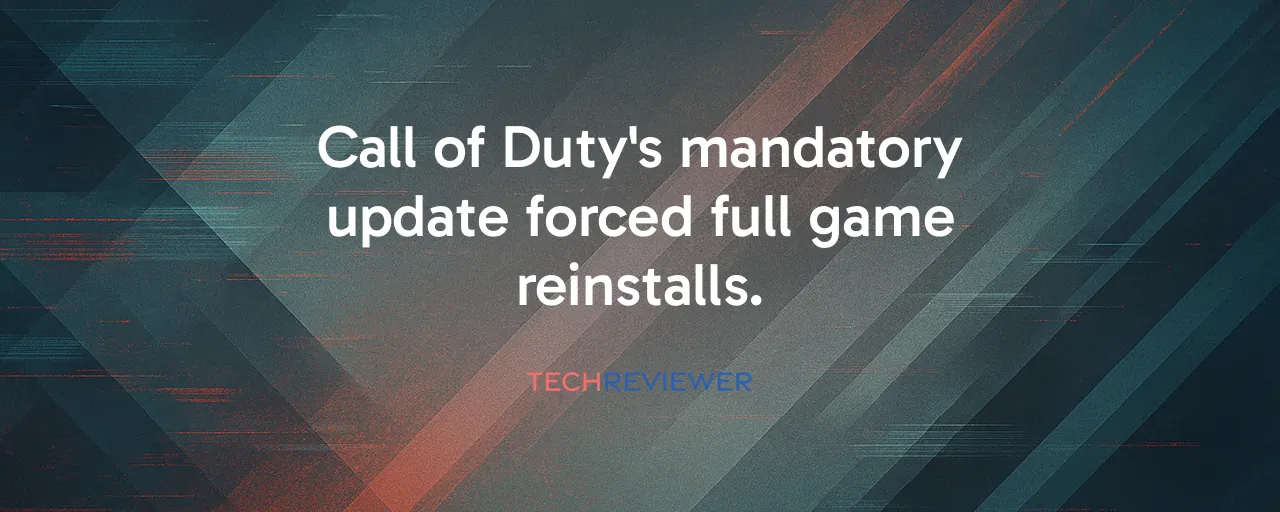The Update That Broke the Camel's Back
When Activision rolled out a mandatory 100GB update for the Call of Duty HQ app on PlayStation 5, players hoping to jump into Black Ops 6 or Warzone got a rude surprise. The update, tied to the November 14, 2025, launch of Call of Duty: Black Ops 7, didn't just tweak a few files. It demanded a complete reinstall of existing games, forcing players to redownload massive content packs just to keep playing titles they already owned. For many, this felt like a betrayal of trust, especially when storage space and internet bandwidth are precious commodities.
This isn't a one-off headache. The update reflects a broader challenge in modern gaming: ballooning file sizes and complex launcher systems that prioritize developer goals over player convenience. With Black Ops 7's arrival, Activision's push to streamline its Call of Duty HQ launcher has left players juggling storage constraints and long download times. Let's dive into why this happens and what it means for gamers.
A Tale of Two Updates
To understand the frustration, look at two recent Call of Duty updates. In September 2025, the Season 5 Reloaded update for Call of Duty on PlayStation 5 caused chaos when it deleted game files, requiring nearly 100GB of redownloads. Players scrambled to free up space, navigate confusing PlayStation Store menus, or even rebuild their console's database to fix errors. Activision offered 2XP token bundles as an apology, but the damage was done, with hours of gameplay lost to technical hiccups.
Contrast that with July 2025, when Activision split Modern Warfare II and III from the Call of Duty HQ launcher, turning them into standalone titles. This move aimed to simplify storage demands by letting players install only the games they wanted. It worked for some, but others still faced multi-gigabyte updates to keep Warzone running. Both cases show Activision experimenting with its launcher architecture, but the results often leave players stuck with time-consuming workarounds.
The lesson? Big updates sound great on paper, with streamlined launchers and modular installs, but poor execution can turn a quick patch into a day-long ordeal. Players want control, not chaos.
The Tech Behind the Turmoil
Activision's reasoning makes sense from a technical standpoint. The Call of Duty HQ launcher, designed to house multiple titles like Black Ops 6, Warzone, and Black Ops 7, got a major overhaul to shrink its base size from 126GB to about 25GB. That's a huge win for storage-conscious gamers. The catch? To make it happen, the update restructured how game files are stored, forcing reinstalls of existing titles. For the upcoming Black Ops 7, players can choose to install separate packs for Campaign, Multiplayer, and Zombies, adding another layer to download management.
Then there's the streaming tech. Activision's new system cycles less-used assets to a cloud-based cache, meaning you don't need every file stored locally. It offers two modes: optimized for high-quality visuals and minimal for slower connections. Sounds smart, but in practice, textures can load at lower quality until the cache catches up, which frustrates competitive players who need every pixel perfect. The tech promises smaller file sizes long-term, but the upfront cost, including hours of downloads and storage juggling, hits hard.
Players Pay the Price
For PlayStation 5 owners, the stakes are high. The console's 825GB SSD fills up fast when a single Call of Duty title can push 100GB, and multiple games can exceed 200GB. If you're a casual player with a data cap, redownloading Warzone could mean extra charges or slowed internet for the whole household. Even worse, some players report errors claiming insufficient storage despite having enough space, forcing them to dig through menus or online forums for fixes.
Activision's defenders argue that these updates pave the way for smoother experiences, like faster load times and 120Hz performance on next-gen consoles. But for players who just want to hop into a quick match, the immediate hassle overshadows future promises. Competitive gamers and streamers, who rely on stable access for tournaments or content creation, face disruptions that can derail their schedules. It's a reminder that innovation often comes at a cost, one that players bear directly.
What's Next for Gaming's Storage Woes
The Call of Duty saga isn't unique. Games like Battlefield and Grand Theft Auto routinely push storage limits, and unified launchers like Steam or Xbox's app face similar growing pains. Activision's streaming tech and modular installs are steps toward a solution, but they're not there yet. Players need better tools, such as clearer storage management interfaces or the ability to delay non-critical updates. Sony and Microsoft could help by improving console dashboards to show exactly what's eating up space.
Looking ahead, the industry's leaning hard into streaming. Cloud gaming services like Xbox Cloud Gaming sidestep local storage entirely, but latency issues make them a tough sell for fast-paced shooters. For now, players are stuck balancing innovation with inconvenience. Activision's learning, but until updates respect players' time and resources, frustration will linger. Next time you fire up your PS5, maybe check your storage first. You might need it.
